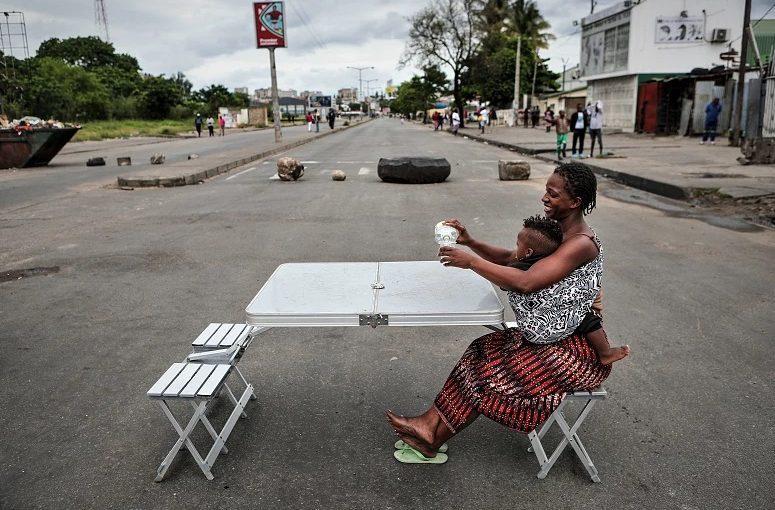Africa-Press – Mozambique. This Monday (09.06), Mozambique’s Frelimo government fired the starting gun for the country’s vast and diverse civil society to fight for just three seats on the Technical Commission for the Peace and Reform Dialogue in the country. The European Union is financing the process, and has chosen the non-governmental MASC and IMD organizations to manage the fund and provide technical assistance to the commission.
João Pereira, director of the Civil Society Support Mechanism (MASC), talks about two moments: “One moment in which we will have a consortium with MASC and the Institute for Multiparty Democracy (IMD). Our first major mission is to manage the money that will come from donors – in the amount of €1.5 million, if everything goes well – to help operationalize part of the activities developed by the technical committee.”
“The other point is to try to coordinate all the efforts of civil society participation within this national inclusive process,” he said.
But the candidates are not happy with the quota reserved for them – only three representatives out of a group of 21 members of the commission, 18 of whom are from political parties.
Lázaro Mabunda, a member of civil society, is among those dissatisfied, and also criticizes the low level of preparedness of those who have the largest share and consequent contribution to the smooth running of the country.
“Most of them have no expertise, no knowledge, they know absolutely nothing. A lot of money is being injected, they will have perks, travel allowances…. To leave two or three places for civil society and 18 or 19 places for useless people is just impossible,” he comments.
Are there selection rules?
But what about the selection criteria? The invitation to civil society refers to “suitable, qualified candidates with proven experience”.
José Manteigas, a member of parliament for the Mozambican National Resistance (Renamo), the second largest opposition party, agrees in principle, although he warns of the risk of “buying a pig in a poke”, as he says happened in the National Electoral Commission (CNE).
“The requirements are that they be credible people, because we have had people from civil society who were, for example, involved in electoral processes and, at the end of the day, their performance was catastrophic. In the last elections, we had a bishop as president of the CNE and those were highly problematic elections. We had other pastors leading the CNE and those were also problematic elections,” Manteigas recalls.
That is why he stresses that “the credibility, transparency and neutrality of these people is important”.
These are issues that also keep Lázaro Mabunda awake at night, who also warns of the risks of Frelimo orchestrating yet another “coup” against the opposition, facilitating its strengthening in power: “We still don’t know what the criteria are. How are you going to select people with so much diverse knowledge but who are outside?”
“The ones who are there are the political parties that will all be manipulated by the Frelimo party. Frelimo will decide how they will dance to their tune,” warns the researcher.
Mabunda stresses that the next, local elections are just around the corner, “and the opposition will wake up very late. Frelimo will make gains in the local, provincial and general elections”.
Does regional representation count?
But the rules have already been defined, Pereira says: “The criteria are there: regional representation.”
“What does that mean in practical terms? There are representatives from the central region, another from the central region and another from the southern region.” This is a criterion that will certainly trigger yet another moment of tension.
On the other hand, the expensive process, in a highly impoverished country, is not questioned by politicians. The silence of the parties is seen as complicit and even opportunistic: “They didn’t say anything because they have to live,” says Mabunda.
Without a doubt, this is a challenging initiative, and at a time when inclusion is the watchword, other cross-cutting factors, which cannot be marginalized, must be added, Pereira comments.
It will be necessary to “make the process as inclusive as possible and not just for us, who are in Maputo, to think that we represent all civil society organizations. We must be able to accept that some of our colleagues from civil society organizations (CSOs) who come from the provinces may be chosen”, he says.
The director of MASC warns, however, about the obstacles that civil society will encounter along the way: “As from all these dimensions, in addition to having seats on the committees, we broaden the debate so that the process is as inclusive as possible. This is the effort that the whole of society must make.”
The Committee for Dialogue arises in the wake of the political upheaval that the country experienced after the 2024 elections. The objective, in addition to restoring peace, is to draw up, among other things, reforms to the state.
For More News And Analysis About Mozambique Follow Africa-Press






